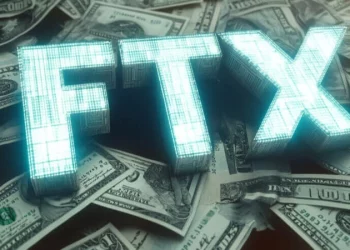Choosing the right wallet for your Binance transactions is crucial for security, convenience, and efficiency. With so many options available, it can be overwhelming to decide which one suits your needs best. This guide will explore the top wallets compatible with Binance, highlighting their features, pros, and cons to help you make an informed decision.
Understanding Crypto Wallets
A cryptocurrency wallet is a digital tool that allows you to store, send, and receive digital assets. Wallets come in different forms, including hardware wallets, software wallets, and exchange-based wallets. Each type has its advantages and disadvantages, depending on your usage and security preferences.
Hardware wallets are physical devices that store your private keys offline, making them highly secure. Software wallets, on the other hand, are applications or programs that can be installed on your computer or smartphone. Exchange wallets are provided by platforms like Binance and are convenient for trading but less secure for long-term storage.
Best Wallets for Binance Users
Trust Wallet
Trust Wallet is a popular mobile wallet that supports a wide range of cryptocurrencies, including those available on Binance. It is known for its user-friendly interface and strong security features.
One of the biggest advantages of Trust Wallet is its integration with Binance. Users can easily transfer funds between Binance and Trust Wallet without complications. The wallet also supports decentralized applications (DApps) and staking, allowing users to earn passive income.
However, since Trust Wallet is a hot wallet (connected to the internet), it is less secure than hardware wallets. It is best suited for users who frequently trade or interact with DeFi platforms.
Ledger Nano X
The Ledger Nano X is a top-tier hardware wallet that provides maximum security for your Binance assets. It stores private keys offline, protecting them from hackers and malware.
This wallet supports a vast number of cryptocurrencies, including all major tokens available on Binance. The Ledger Live app allows users to manage their assets easily and even stake certain coins directly from the wallet.
The downside of the Ledger Nano X is its cost. It is more expensive than software wallets, but the investment is worth it for long-term holders who prioritize security.
MetaMask
MetaMask is a browser extension and mobile wallet that is widely used in the Ethereum ecosystem. It also supports Binance Smart Chain (BSC), making it a great choice for Binance users who engage in DeFi activities.
MetaMask allows users to connect to decentralized exchanges (DEXs) and interact with smart contracts seamlessly. Its simplicity and compatibility with various Web3 applications make it a favorite among crypto enthusiasts.
The main drawback of MetaMask is that it primarily focuses on Ethereum and BSC-based tokens. If you hold a diverse portfolio outside these networks, you might need an additional wallet.
Exodus Wallet
Exodus is a desktop and mobile wallet known for its sleek design and intuitive interface. It supports multiple cryptocurrencies, including those traded on Binance.
One of the standout features of Exodus is its built-in exchange, which allows users to swap coins without leaving the wallet. It also offers portfolio tracking and customer support, which is rare for non-custodial wallets.
The downside is that Exodus is a closed-source wallet, meaning its code is not publicly audited. This may raise concerns for users who prioritize transparency.
Binance Chain Wallet
The Binance Chain Wallet is a browser extension designed specifically for Binance Smart Chain and Binance Chain. It is an excellent choice for users who primarily trade on Binance.
This wallet allows direct interaction with Binance DEX and other BSC-based applications. It is lightweight and easy to use, making it ideal for beginners.
However, since it is a browser extension, it is vulnerable to phishing attacks and malware. Users must exercise caution when using this wallet.
Factors to Consider When Choosing a Wallet
Security
Security should be your top priority when selecting a wallet. Hardware wallets like Ledger Nano X offer the highest level of protection, while software wallets are more convenient but less secure.
Ease of Use
If you are new to cryptocurrencies, a user-friendly wallet like Trust Wallet or Exodus may be the best choice. Advanced users might prefer wallets with more features, such as MetaMask.
Compatibility
Ensure the wallet supports the cryptocurrencies you plan to store. Some wallets are limited to specific blockchains, so check the supported assets before making a decision.
Fees
Different wallets have varying fee structures. Some charge high transaction fees, while others offer lower costs. Consider this factor if you frequently move funds between wallets and exchanges.
Conclusion
Selecting the best wallet for Binance depends on your individual needs, whether it’s security, convenience, or functionality. Trust Wallet and Binance Chain Wallet are excellent for active traders, while Ledger Nano X is ideal for long-term holders. MetaMask and Exodus offer great features for DeFi users. By understanding your priorities, you can choose the perfect wallet to manage your Binance assets securely and efficiently.
Related Topics:

















